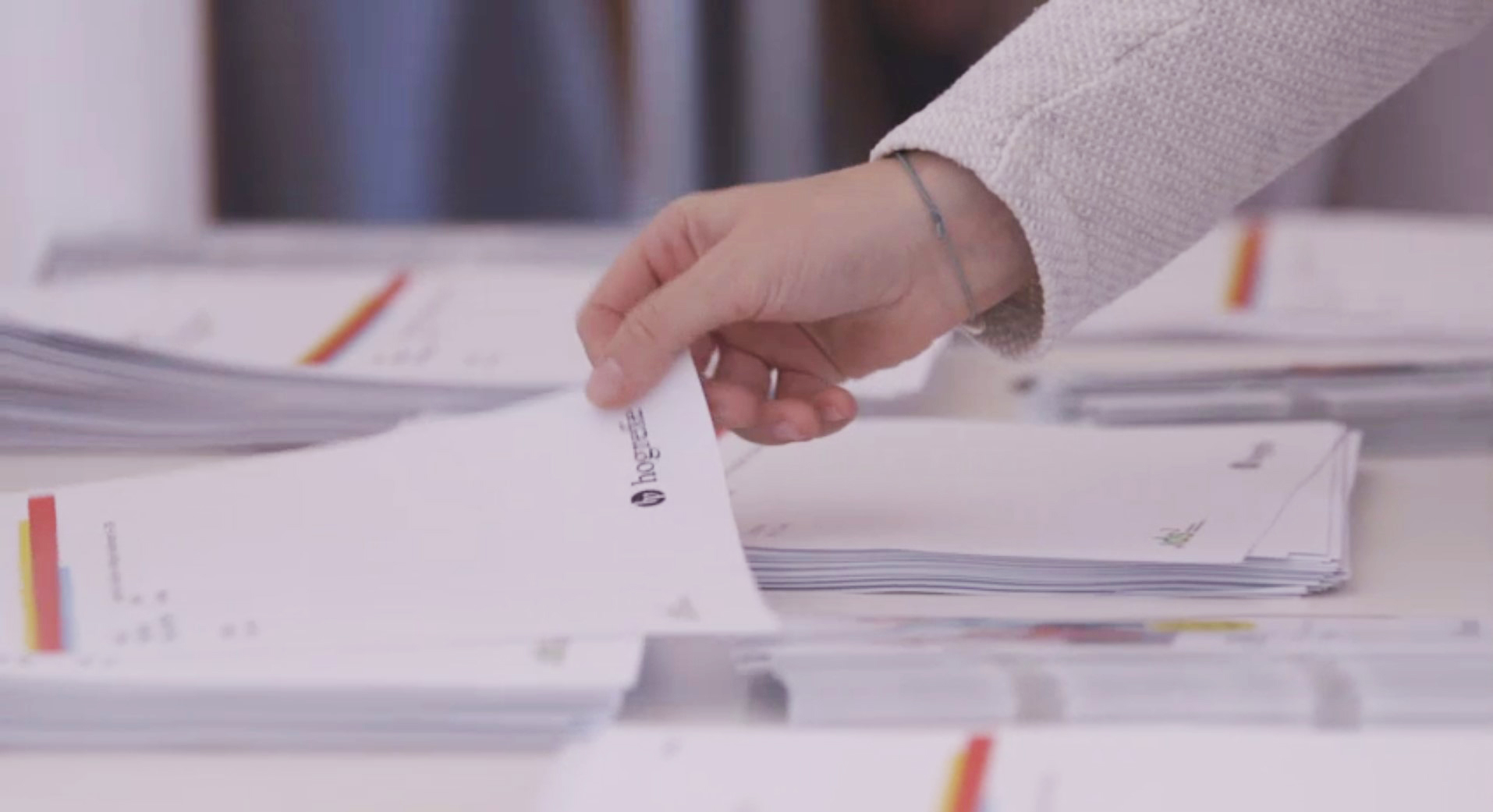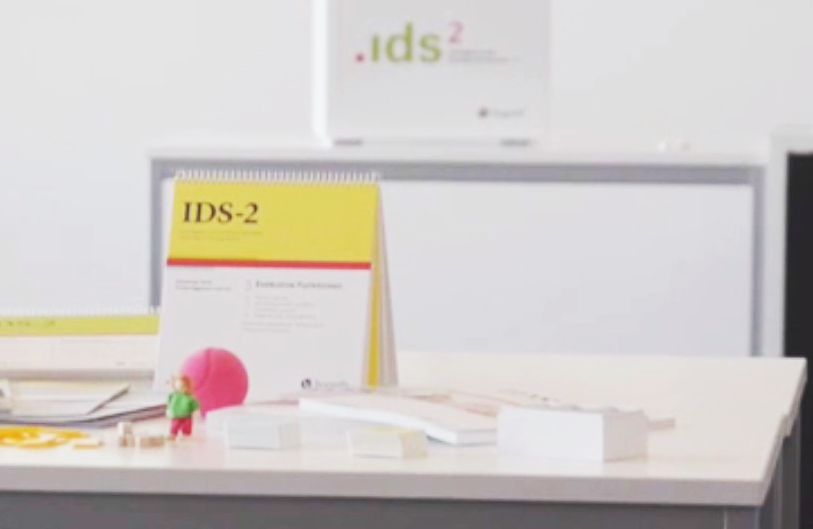Grob, A., Hagmann-von Arx, P., Barnett, A.L., Stuart, N. y Vanzan, S. (2021). Escalas de Inteligencia y Desarrollo para Niños y Adolescentes — 2da Edición (IDS-2). Adaptación del Reino Unido. Oxford: Hogrefe.
Grob A, Hagmann-von Arx P, Ruiter S, Timmerman M y Visser L (2019). Capas de inteligencia y desarrollo para niños y jóvenes — Two Druks (IDS-2). Procesamiento holandés. Ámsterdam: Hogrefe.
Grob, A. y Hagmann-von Arx, P. (2018). Escalas de Inteligencia y Desarrollo-2 (IDS-2). Escalas de inteligencia y desarrollo para niños y adolescentes. Berna: Hogrefe.
Grob, A., Reimann, G., Gut, J. y Frischknecht, M.-C. (2013). Escalas de Inteligencia y Desarrollo—Preescolar (IDS-P). Escalas de inteligencia y desarrollo para preescolares. Berna: Verlag Hans Huber.
Grob, A., Meyer, C.S. & Hagmann-von Arx, P. (2009). Escalas de Inteligencia y Desarrollo (IDS). Escalas de inteligencia y desarrollo para niños de 5 a 10 años. Berna: Verlag Hans Huber.
Barnett, A. L., Joyce, T., Vanzan, S., & Stuart, N. (2023). Inhibition skills in children with developmental coordination disorder. Developmental Neuropsychology, 15(1), 8756–5641. https://doi.org/10.1080/87565641.2023.2205139
Barnett, A. L., Joyce, T., Vanzan, S., & Stuart, N. (2022). The psychomotor domain of the IDS-2: A new measure of motor performance. Assessment and Development Matters, 14(3), 9–12. ISSN: 2752-8111
Kahl, T., Grob, A., Segerer, R., & Möhring, W. (2022). Bidirectional associations among executive functions, visual-spatial skills, and mathematical achievement in primary school students: Insights from a longitudinal study. Cognitive Development, 62(10). DOI: 10.1016/j.cogdev.2021.101149
Bünger, A., Grieder, S., Schweizer, F., & Grob, A. (2021). The comparability of intelligence test results: Group- and individual-level comparisons of seven intelligence tests. Journal of School Psychology, 88, 101-117. DOI 10.1016/j.jsp.2021.09.002
Grieder, S., Bünger, A., Odermatt, S., Schweizer, F., & Grob, A. (2021). Limited internal comparability of general intelligence composites: Impact on external validity, possible predictors, and practical remedies. Assessment. DOI: 10.1177/10731911211005171
Hagmann-von Arx, P., Gauck, L., & Grob, A. (2021). Intelligenzdiagnostik in der Schulpsychologie. In K. Seifried, S. Drewes, & M. Hasselhorn (Hrsg.), Handbuch Schulpsychologie — Psychologie für die Schule. Dritte vollständig überarbeitete Auflage (pp. 118-128). Stuttgart: Kohlhammer Verlag.
Kahl, T., Grob, A., & Möhring, W. (2021). Does emotion regulation compensate deficits in various executive functions in children’s and adolescents’ mathematical achievement. Learning and Individual Differences, 89. DOI 10.1016/j.lindif.2021.102034
Kahl, T., Grob, A., Segerer, R., & Möhring, W. (2021). Executive functions and visual-spatial skills predict mathematical achievement – Asymmetrical associations across age. Psychological Research, 85, 36-46. doi:10.1007/s00426-019-01249-4 31560097
Schweizer, F., Grieder, S., Bünger, A., & Grob, A. (2021). Vergleich von Intelligenzleistungen bei monolingualen und bilingualen Kindern und Jugendlichen in den Intelligence and Development Scales-2 (IDS-2){Comparison of intelligence between Mmonolingual and bilingual children and adolescents with the Intelligence and Development Scales-2 (IDS-2)}. Diagnostica, 67, 36-46. DOI: 10.1026/0012-1924/a000260.
Grieder, S., & Grob, A. (2020). Exploratory Factor Analyses of the Intelligence and Development Scales–2: Implications for Theory and Practice. Assessment, 27, 1853-1869. Doi: 10.1177/1073191119845051
Timmerman, M. E., Voncken, L., & Albers, C. J. (2020, August 27). A Tutorial on Regression-Based Norming of Psychological Tests With GAMLSS. Psychological Methods. Advance online publication. http://dx.doi.org/10.1037/met0000348
Grieder, S., & Grob, A. (2020). Exploratory Factor Analyses of the Intelligence and Development Scales–2 (IDS-2): Implications for Theory and Practice. Assessment. DOI: 10.1177/1073191119845051 (online first)
Kahl, T., Grob, A., Segerer, R., & Möhring, W. (2020). Executive functions and visual-spatial skills predict mathematical achievement – Asymmetrical associations across age. Psychological Research. doi:10.1007/s00426-019-01249-4 31560097, online first.
Schweizer, F., Grieder, S., Bünger, A., & Grob, A. (2020). Vergleich von Intelligenzleistungen bei monolingualen und bilingualen Kindern und Jugendlichen in den Intelligence and Development Scales-2 (IDS-2). Diagnostica, accepted.
Hagmann-von Arx, P., Reimann, G., & Grob, A. (2019). Entwicklungsdiagnostik. In S. Schneider, & J. Margraf (Eds.) Lehrbuch der Verhaltenstherapie: Störungen des Kindes- und Jugendalters (Band 3). 2. überarbeitete Auflage (pp. 145-155). Berlin: Springer.
Hagmann-von Arx, P., Lemola, S., & Grob, A. (2018). Does IQ = IQ? Comparability of intelligence test scores in typically developing children. Assessment, 25, 691-701. DOI: 10.1177/1073191116662911
Schweizer, F., Hagmann-von Arx, P., Ledermann, T., & Grob, A. (2018). Geschlechtsdifferenzen in der Intelligenzeinschätzung mit den Intelligence and Development Scales für Kinder von 3 bis 5 Jahren (IDS-P) und 5 bis 10 Jahren (IDS). Diagnostica. doi.org/10.1026/0012-1924/a000207
Gygi, J.T., Hagmann-von Arx, P., Schweizer, F., & Grob, A. (2017). The predictive validity of four intelligence tests for school grades: A small sample longitudinal study. Frontiers in Psychology, 13(8), 375. DOI: 10.3389/fpsyg.2017.00375.
Frischknecht, M.-C., Reimann, G., & Grob, A. (2015). Erkennen Eltern Entwicklungsdefizite im Vorschulalter? Zur Akkuratheit elterlicher Einschätzung kindlicher Entwicklung {Do Parents Notice Deficits in Child Development at Preschool Age? Accuracy of Parent Estimation Concerning Child Development}. Kindheit und Entwicklung, 24, 70–77. DOI: 10.1026/0942-5403/a000162
Hagmann-von Arx, P., Gauck, L., & Grob, A. (2015). Intelligenzdiagnostik in der Schulpsychologie. In K. Seifried, S. Drewes, & M. Hasselhorn (Hrsg.), Handbuch Schulpsychologie — Psychologie für die Schule. Zweite vollständig überarbeitete Auflage (pp. 128-139). Stuttgart: Kohlhammer Verlag.
Frischknecht, M.-C., Reimann, G., Gut, J., & Grob, A. (2014). Wie genau können Mütter die Mathematik- und Sprachleistungen ihrer Kinder einschätzen? Ein Vergleich zwischen Müttereinschätzung und Testleistungen bei Kindern im Alter von 6-10 Jahren {The accuracy of maternal reports regarding their children’s mathematical and language abilities. A comparison of maternal estimates and actual test scores of children between 6 and 10 years of age}. Zeitschrift für Entwicklungspsychologie und Pädagogische Psychologie, 46, 67-78. DOI: 10.1026/0049-8637/a000101
Hagmann-von Arx P., Perkinson-Gloor N., Brand S., Albert D., Holsboer-Trachsler E., Grob A., Weber P., & Lemola, S. (2014). In School-Age Children Who Were Born Very Preterm Sleep Efficiency Is Associated with Cognitive Function. Neuropsychobiology, 70, 244-252. doi.org/10.1159/000369026
Hagmann-von Arx, P., Petermann, F., & Grob, A. (2013). Konkurrente Validität der WISC-IV und der Intelligence and Development Scales (IDS) bei Kindern mit Migrationshintergrund. Diagnostica, 59, 1-13. DOI: 10.1026/0012-1924/a000091
Gut, J., Reimann, G. & Grob, A. (2013). A contextualized view of long-term predictors of academic performance. Journal of Educational Psychology.
Reimann, G., Gut, J., Frischknecht, M.-C. & Grob, A. (2013). Memory abilities in children with mathematical difficulties: Comorbid language difficulties matter. Learning and Individual Differences, 23, 108-113.
Reimann, G., Stoecklin, M., Lavallee, K., Gut, J., Frischknecht, M.-C. & Grob, A. (2013). Cognitive and motivational profile shape predicts mathematical skills over and above profile level. Psychology in the Schools, 50, 37-56.
Grob, A. & Hagmann-von Arx, P. (Hrsg.) (2012). Fallbuch IDS – Die Intelligence and Development Scales in der Praxis. Göttingen: Hogrefe.
Gut, J., Reimann, G. & Grob, A. (2012). Kognitive, sprachliche, mathematische und sozial-emotionale Kompetenzen als Prädiktoren späterer schulischer Leistungen: Können die Leistungen eines Kindes in den IDS dessen Schulnoten drei Jahre später vorhersagen? {Cognitive, Language, Mathematical, and Socioemotional Skills as Predictors of Subsequent School Performance: Is a Child’s Performance on the Intelligence Development Scales Predictive of its School Performance three Years later?} Zeitschrift für Pädagogische Psychologie, 26, 213-220.
Gut, J., Heckmann, C., Meyer, C.S., Schmid, M. & Grob, A. (2012). Language skills, mathematical thinking, and achievement motivation in children with ADHD, disruptive behavior disorders, and normal controls. Learning and Individual Differences, 22, 375-379.
Hagmann-von Arx, P., Grob, A., Petermann , F., & Daseking, M. (2012). Konkurrente Validität des HAWIK-IV und der IDS. Zeitschrift für Kinder- und Jugendpsychiatrie und Psychotherapie, 40, 41-50.
Grob, A. & Bodmer, N.M. (2011). Entwicklungs- und Leistungsdiagnostik – Kapitel 55. In G. Meinlschmidt, S. Schneider, & J. Margraf (Hrsg.) Lehrbuch der Verhaltenstherapie. Materialien für die Psychotherapie (Band 4, S. 523-530). Berlin: Springer.
Grob, A., & Hagmann-von Arx, P. (2011). Replik auf die Rezension von Koch, H., Kastner-Koller, U., & Deimann, P. (2011). Testbesprechung „Grob, A., Meyer, C.S., & Hagmann-von Arx, P. (2009). Intelligence and Development Scales (IDS). Intelligenz- und Entwicklungsskalen für Kinder von 5-10 Jahren. Bern: Huber.“ Zeitschrift für Entwicklungspsychologie und Pädagogische Psychologie, 43, 246-249.
Meyer, C.S., Hagmann-von Arx, P., Lemola, S. & Grob, A. (2010). Correspondence between the general ability to discriminate sensory stimuli and general intelligence. Journal of Individual Differences, 31, 46-56.
Grob, A., Hagmann-von Arx, P. & Bodmer, N. (2009). Entwicklungsdiagnostik. In S. Schneider & J. Margraf. Lehrbuch der Verhaltenstherapie (S. 145-158). Heidelberg: Springer.
Meyer, C.S., Hagmann-von Arx, P. & Grob, A. (2009). Die Intelligence and Development Scale Sozial-Emotionale Kompetenz (IDS-SEK). Psychometrische Eigenschaften eines Tests zur Erfassung sozial-emotionaler Fähigkeiten. Diagnostica, 55, 234-244.
Hagmann-von Arx, P., Meyer, C.S. & Grob, A. (2008). Assessing intellectual giftedness with the WISC–IV and the IDS. Journal of Psychology, 216, 173-180.
Hagmann-von Arx, P., Meyer, C.S. & Grob, A. (2008). Intelligenz- und Entwicklungsdiagnostik im deutschen Sprachraum. Kindheit und Entwicklung, 17, 232-242
Grieder, S. (2021). Structural and Convergent Validity of Intelligence Composites: Integrating Evidence from Three Analysis Levels. Dissertation. Faculty of Psychology. University of Basel.
Kahl, P.T. (2021). Domain-General Abilities and Mathematical Achievement: A Developmental perspective on the Roles of Executive Functions, Visual-Spatial Skills, and Emotion Regulation. Dissertation. Faculty of Psychology. University of Basel.
Gygi, J.T. (2016). Intelligence and its Assessment Across the Life Span: Analyzing Construct and Criterion Validity. Dissertation. Faculty of Psychology. University of Basel.
Schweizer, F. (2016). Intelligenzdiagnostik im Kindes- und Jugendalter: Befunde zur Konstrukt-, differentiellen und Kriteriumsvalidität der Intelligence and Development Scales. Dissertation. Faculty of Psychology. University of Basel.
Grob, A., Hagmann-von Arx, P. & Meyer, C.S. (2009). Zeitgemäss, reliabel und valid. Die neuen „Intelligence and Development Scales“ IDS. Psychoscope, 30, 4-7.
Grob, A., Meyer, C.S. & Hagmann-von Arx, P. (2007). Entwicklung und Intelligenz; Überarbeitung des Kramer-Intelligenztests (KIT). Psychoscope, 28, 12-13.
Grob, A., Meyer, C.S. & Hagmann-von Arx, P. (2008). Die neu entwickelte IDS Skala zur Erfassung sozial-emotionaler Kompetenz: Validierungsstudie bei Kindern mit Asperger-Syndrom. Autismus deutsche Schweiz, Jahresbericht 2008, S. 14-17.

Todos los profesionales que trabajen en las distintas versiones de la IDS-2 pueden acceder a una base de datos global para que puedan investigar sobre el desarrollo psicológico de los niños y adolescentes.

Más información sobre la aplicación, puntuación y uso de la IDS-2

La IDS-2 se basa en la teoría Cattel-Horn-Carroll. Las puntuaciones, que abarcan el pensamiento verbal y abstracto, la memoria a corto y largo plazo, el procesamiento visual y la velocidad de procesamiento, pueden calcularse utilizando dos, siete o catorce subpruebas.